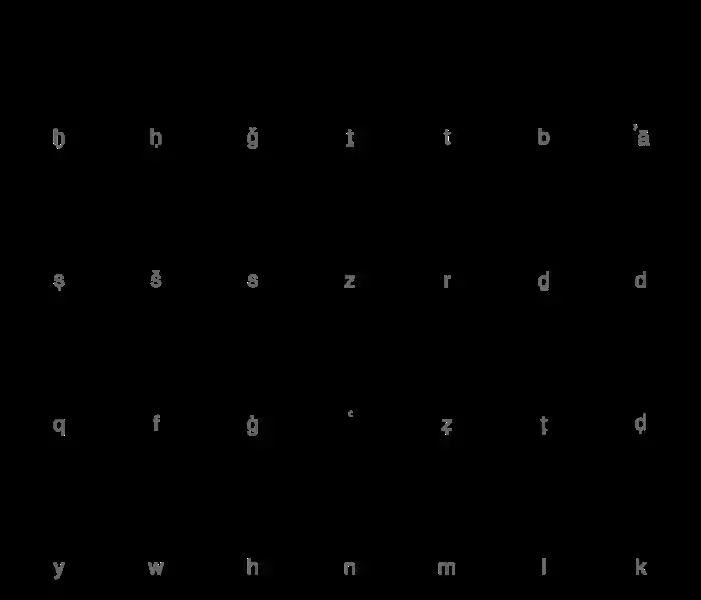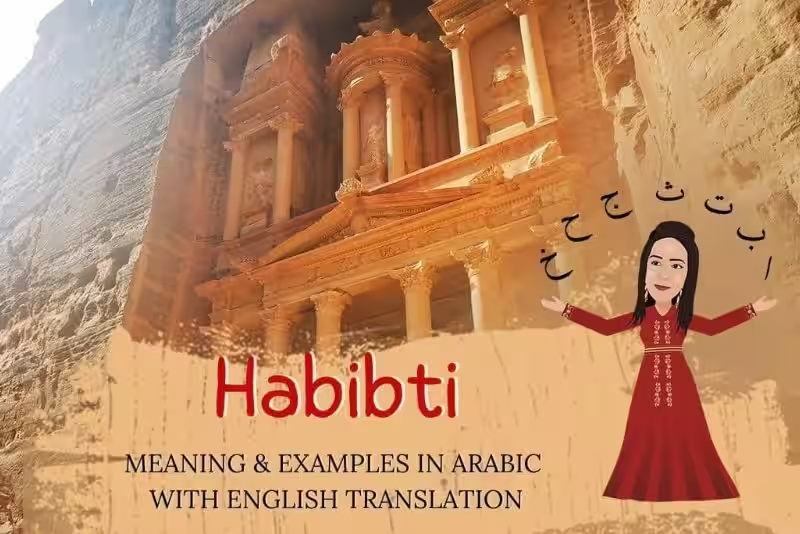
In English, “Oh my gosh” is a common exclamation used to express surprise, shock, or amazement. But what about in Arabic? How do you say “Oh my gosh” in this rich and diverse language? The answer is multifaceted, reflecting the nuanced ways in which Arabic speakers express their emotions.
The Most Common Arabic Translation: “يا إلهي” (Ya Ilahi)
The phrase “يا إلهي” (Ya Ilahi) is the most direct and widely recognized translation for “Oh my gosh” in Arabic. It literally translates to “Oh God” or “Oh my God.” This expression is used in a variety of contexts to convey surprise, shock, or amazement.
For example, imagine you’re walking down the street in a bustling Arabic city and suddenly see a beautiful, intricately designed building. You might exclaim, “يا إلهي! كم هو جميل!” (“Oh my God! How beautiful it is!”) This phrase captures the instant awe and wonder you feel at seeing something unexpected and impressive.
Beyond “Ya Ilahi”: Other Expressions of Surprise
While “Ya Ilahi” is the most common translation, Arabic has a wealth of other expressions that can convey similar sentiments. These phrases often reflect the cultural context and the specific emotion being expressed.
“يا ربي” (Ya Rabbi): A More Personal Touch
This phrase translates to “Oh my Lord” and is often used to express surprise, shock, or even a sense of disbelief. It carries a more personal and heartfelt tone compared to “Ya Ilahi,” suggesting a deeper connection with the Divine.
For instance, if you receive unexpected good news, you might say, “يا ربي! هذا رائع!” (“Oh my Lord! This is wonderful!”) This phrase reflects both joy and a sense of gratitude for the blessing received.
“سبحان الله” (Subhan Allah): Expressing Awe and Wonder
Meaning “Glory be to God,” “سبحان الله” (Subhan Allah) is used to express awe, amazement, and wonder at something unexpected or extraordinary. It’s often used in situations where you’re struck by the beauty, power, or complexity of something.
For instance, if you witness a breathtaking sunset, you might say, “سبحان الله! كم هو جميل!” (“Glory be to God! How beautiful it is!”) This expression conveys a sense of reverence and appreciation for the natural world.
Using “Oh My Gosh” in Arabic: A Note of Caution
While “Ya Ilahi” and other similar phrases are widely used in Arabic conversation, it’s important to remember that they are closely tied to religious beliefs. In some contexts, these expressions might be considered inappropriate or even disrespectful, particularly in formal settings or when speaking to elders.
It’s always a good idea to err on the side of caution and use these phrases judiciously. If you’re unsure about the appropriateness of a particular expression, it’s best to ask a native Arabic speaker for guidance.
Learning Arabic: A Journey of Discovery
Learning Arabic is a journey of discovery. It’s an opportunity to explore a rich and fascinating culture, understand its nuances, and connect with people from all walks of life. Mastering the language requires not only vocabulary and grammar but also an understanding of cultural context and etiquette.
As you delve deeper into the Arabic language, you’ll discover a world of expressions that go beyond simple translations. You’ll learn how to communicate your emotions effectively, navigate cultural intricacies, and appreciate the beauty of this ancient and vibrant language.
Frequently Asked Questions about “Oh My Gosh” in Arabic
What is the Arabic translation for “Oh my gosh”?
The most common translation for “Oh my gosh” in Arabic is “يا إلهي” (Ya ilahi).
How do you pronounce “Ya ilahi”?
The pronunciation is “Ya” (like the “ya” in “yard”) “ee” (like the “ee” in “see”) “la” (like the “la” in “lake”) “hi” (like the “hi” in “high”).
What does “Ya ilahi” literally mean?
It literally translates to “Oh God” or “Oh my God.”
Is “Ya ilahi” always religious in nature?
While it refers to God, it’s not always intended to be strictly religious in everyday conversation. It’s more about expressing surprise or astonishment.
Are there other ways to say “Oh my gosh” in Arabic?
Yes, you can also use “يا ربي” (Ya rabbi) which means “Oh my Lord” or “يا الله” (Ya Allah) which means “Oh God.”
What is the most appropriate way to say “Oh my gosh” in Arabic?
The most appropriate way depends on the situation and the relationship you have with the person you are speaking to. “Ya ilahi” is often the most natural and informal option.
Should I be careful when using “Ya ilahi”?
As with any religious expression, it’s best to use it respectfully and avoid using it in a disrespectful or irreverent manner.
- Ya Allah! (يا الله!): This is the most direct translation of “Oh my God!” and is widely used to express surprise, shock, or disbelief.
- Subhan Allah! (سبحان الله!): Meaning “Glory be to God!”, this phrase is often used to express awe, wonder, or amazement at something unexpected or extraordinary.
- Ma shaa Allah! (ما شاء الله!): Meaning “What God wills!”, this phrase expresses appreciation for something good or beautiful, often followed by “La quwwata illa billah” (There is no strength but with God).
- Ya Rabbi! (يا ربي!): This means “Oh my Lord!” and is a more personal and heartfelt expression of surprise or shock.
- Wallahi! (والله!): Translates to “By God!” and is used to emphasize a statement or express strong emotion, often in situations of surprise or disbelief.
- Allah Akbar! (الله أكبر!): Means “God is greater!” and is usually used in religious contexts, but can also be used in situations of extreme surprise or shock.
- Astaghfirullah! (أستغفر الله!): Means “I seek forgiveness from God!” and is used to express regret or remorse, but can also be used in situations of surprise or shock to express a sense of disbelief or inadequacy.
- Context is key: The appropriate expression depends on the specific situation and the speaker’s intentions.
- Cultural sensitivity: Be aware of social context and cultural norms when using religious expressions like “Ya Allah!” or “Subhan Allah!” in Arabic, especially with someone you don’t know well.








